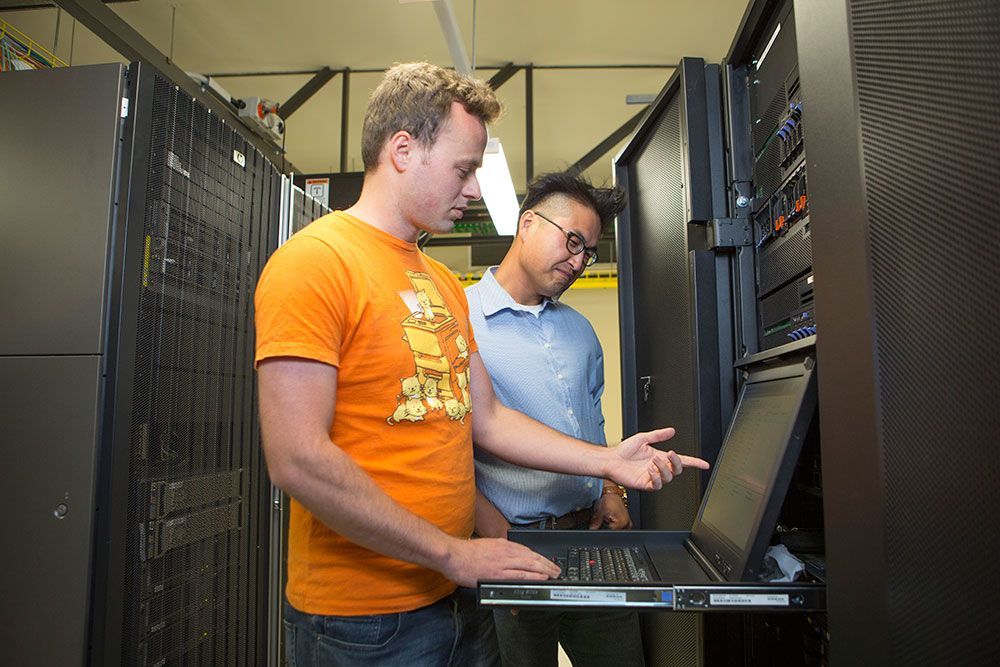Computer Science graduates are employed in a wide variety of jobs — see some examples below.
Note: Some of the jobs listed may require postgraduate study. See the ‘Further study’ section.
Programmer, software developer
- Determines specifications and writes code
- Builds prototypes of software programs
- Tests and fixes computer programs and systems
- Maintains and upgrades programs and systems
- May develop and integrate technical aspects of websites/mobile apps along with other workers
Web developer
- Develops website functionality and security
- Designs back-end web structure such as servers
- Maintains and updates the website as required
Game developer / programmer
- Researches the user market, to meet their needs
- Writes computer code, sources graphics/sounds
- Tests games and fixes any issues
- Creates new and improved version releases
Computer / systems consultant
- Maintains and monitors an organisation’s computer functions and ICT systems
- Recommends the programs and systems that an organisation should use
- Designs computer networks
Software engineer
- Analyses customer needs, evaluates computer software and researches new technologies
- Develops software programs for new products
- Manages software development projects
Software tester, test analyst, quality assurance
- Designs and creates testing tools
- Carries out software compatibility testing with hardware and operating systems
- Sets quality standards for release-ready products
Mobile developer, application developer
- Researches a client’s brief, an organisational need, or a gap in the market
- Codes, designs, produces and tests prototypes
- Creates new and improved version releases
Data analyst / engineer, intelligence analyst
- Understands industry domains and processes
- Analyses large datasets
- Solves complex data problems
Telecommunications / infrastructure engineer
- Designs and maintains telecommunications equipment and systems
- Monitors the installation and use of equipment
- Provides training to staff after installation
Business analyst / developer
- Utilises data and analytical models for organisational information purposes
- Provides insight to assist with decision making
- Liaises with different business functions
Communications / computer / support technician
- Identifies and solves computer software, hardware and website issues
- Installs and tests software, networks, servers
- Updates and repairs equipment
Entrepreneur, Director, CEO
- Leads and manages an organisation
- Sets values, objectives and policies
- Ensures plans are in place, laws complied with and risks managed
- Monitors financial performance and profitability
- Communicates with staff and external groups
Get started with Entrepreneurship here.










